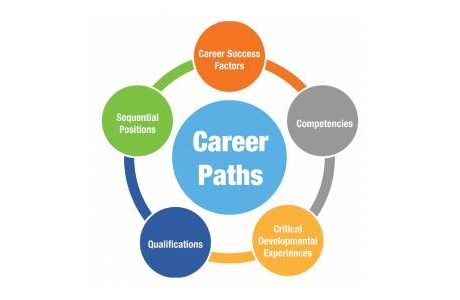Embarking on the medical journey is akin to setting sail on an adventurous odyssey. Spanning between seven and 15 years, physician training is a formidable yet exhilarating commitment. The education landscape constantly evolves to synchronize with the latest medical breakthroughs, emerging public health challenges, and the dynamic needs of communities.
As future physicians dive into the labyrinth of USMLE Step 1 preparation, it’s more than a test they are gearing up for – it’s a rite of passage, a bridge to the evolving landscape of healthcare. It’s a chapter in a narrative that started with a passion for healing and is destined to unfold into a saga of medical excellence. The challenges are embraced, the excitement acknowledged, and the realization that this journey is not just about becoming a doctor but about evolving into a guardian of health. The curtain rises on this captivating act, and the future physicians stand ready, appreciative of the demanding but exhilarating path that lies ahead.
At the heart of this transformative journey are medical schools and teaching hospitals, hives of innovation where future physicians immerse themselves in cutting-edge learning. It’s a journey sculpted not only by rigorous academic pursuits but also by the ever-expanding horizons of medical knowledge. From the intricacies of groundbreaking research to the pressing demands of public health, every facet is meticulously woven into the fabric of physician education.
Enter the stage of exams – a series of checkpoints demanding diligence and determination. Foremost among them is the USMLE Step 1, a pivotal milestone that gauges not just knowledge but the adaptability essential for a dynamic healthcare system. The preparation is an intensive undertaking, a convergence of dedicated study hours, practice tests, and a profound appreciation for the vast expanse of medical science.
Importance Of USMLE Step 1
The USMLE Step 1 is a pivotal milestone in the journey of medical professionals, holding profound importance in shaping their careers. This exam serves as a critical assessment of a candidate’s foundational medical knowledge, testing their grasp of basic sciences and their ability to apply principles in clinical contexts. The Step 1 score plays a crucial role in residency program applications, often influencing the selection process significantly.
A strong performance not only opens doors to prestigious specialties but also reflects a candidate’s preparedness for the challenges of clinical practice. Beyond its immediate impact on residency opportunities, the Step 1 score can influence career paths, research opportunities, and even international practice. It stands as a testament to a candidate’s commitment to excellence, making success in this examination a cornerstone for a successful and fulfilling medical career.
Everything About Step 1 USMLE Exam
Embarking on the USMLE Step 1 journey is a significant milestone for medical professionals. As a pivotal examination that assesses a candidate’s foundational medical knowledge, here are eight crucial aspects you must grasp to navigate this challenging yet transformative experience.
Exam Format
The USMLE Step 1 is a computer-based test administered over a single day, typically lasting around eight hours. It consists of seven 60-minute blocks, each containing 40 questions. The total number of questions can vary, but it usually ranges between 280 and 300.
Question Types
Questions in Step 1 can be categorized into multiple-choice questions (MCQs) and matching questions. The majority are single-best answer MCQs, where you select the most appropriate response from the choices provided. Some questions may involve interpreting graphs, charts, or images, and testing your ability to integrate information.
Content Overview
The exam primarily assesses your understanding of basic science concepts and their application in clinical scenarios. Major content areas include anatomy, biochemistry, pathology, pharmacology, behavioral sciences, microbiology, immunology, and physiology. It’s crucial to have a comprehensive understanding of these subjects to excel in Step 1.
Integrated Clinical Vignettes
Many questions are presented in the form of clinical vignettes, requiring you to apply your knowledge in realistic patient scenarios. This integration of basic science principles with clinical context reflects the exam’s emphasis on evaluating your ability to think critically and make sound clinical decisions.
Score Reporting
Starting from January 2022, there has been a significant change in the reporting of USMLE Step 1 scores. The traditional numeric score system, along with the pass/fail outcome, has transitioned exclusively to a pass/fail model. This shift reflects a departure from the previous practice of assigning three-digit scores. As a consequence, candidates will now receive a simple pass or fail designation on their Step 1 results. Test-takers can anticipate receiving their scores approximately four weeks from the date of their Step 1 examination. This modification in the scoring and reporting mechanism aligns with the evolving standards and preferences in medical education, offering a streamlined and simplified approach to evaluating candidates’ performance on this critical examination.
Dedicated Preparation Time
Successful preparation for Step 1 often requires several months of dedicated study. Many candidates allocate a significant portion of their preclinical years to build a strong foundation, followed by an intensive dedicated study period closer to the exam date. Establishing a well-structured study plan is essential for efficient and effective preparation.
Use Of External Resources
Many candidates supplement their medical school curriculum with external resources to reinforce their understanding and prepare for Step 1. Popular resources include review books, question banks, flashcards, and online forums. UWorld, First Aid, Pathoma, and SketchyMedical are commonly utilized tools in this endeavor.
Test-Taking Strategies
Developing effective test-taking strategies is crucial for success. Practice exams, time management, and simulated test conditions can enhance your ability to navigate the exam day with confidence. Familiarize yourself with the test interface, and practice pacing to ensure you allocate your time wisely across the various sections.
Conclusion:
The USMLE Step 1 is more than just an exam; it’s a gateway to the next phase of your medical career. Understanding its format, content, and the strategic approach required is essential. A well-rounded preparation, complemented by a solid grasp of foundational medical concepts, will not only lead to success on this examination but also set the stage for your future success in clinical practice and specialized training.
Read Also:























All Comments
Tanya Lyons
Normally I do not read article on blogs however I would like to say that this writeup very forced me to try and do so Your writing style has been amazed me Thanks quite great post